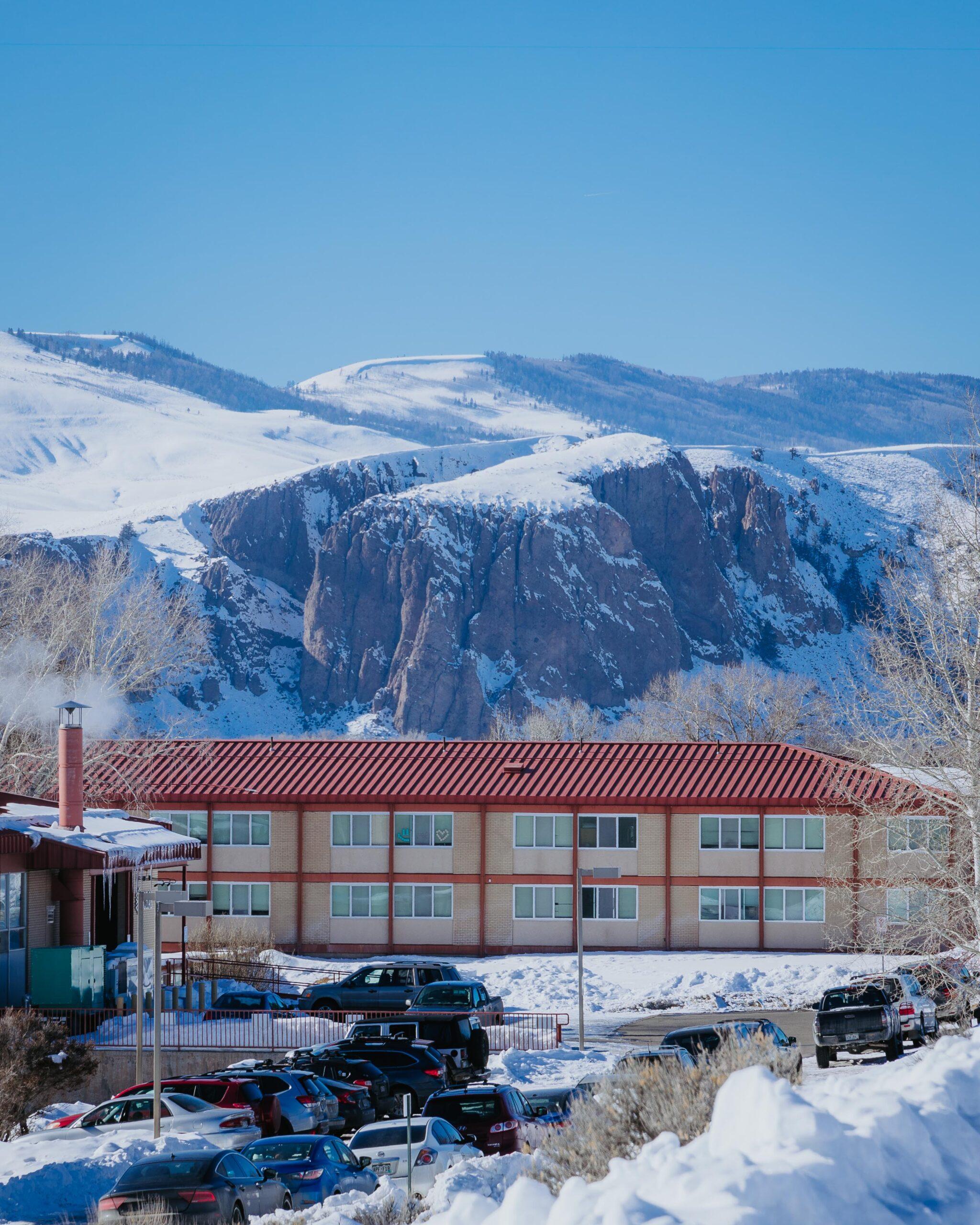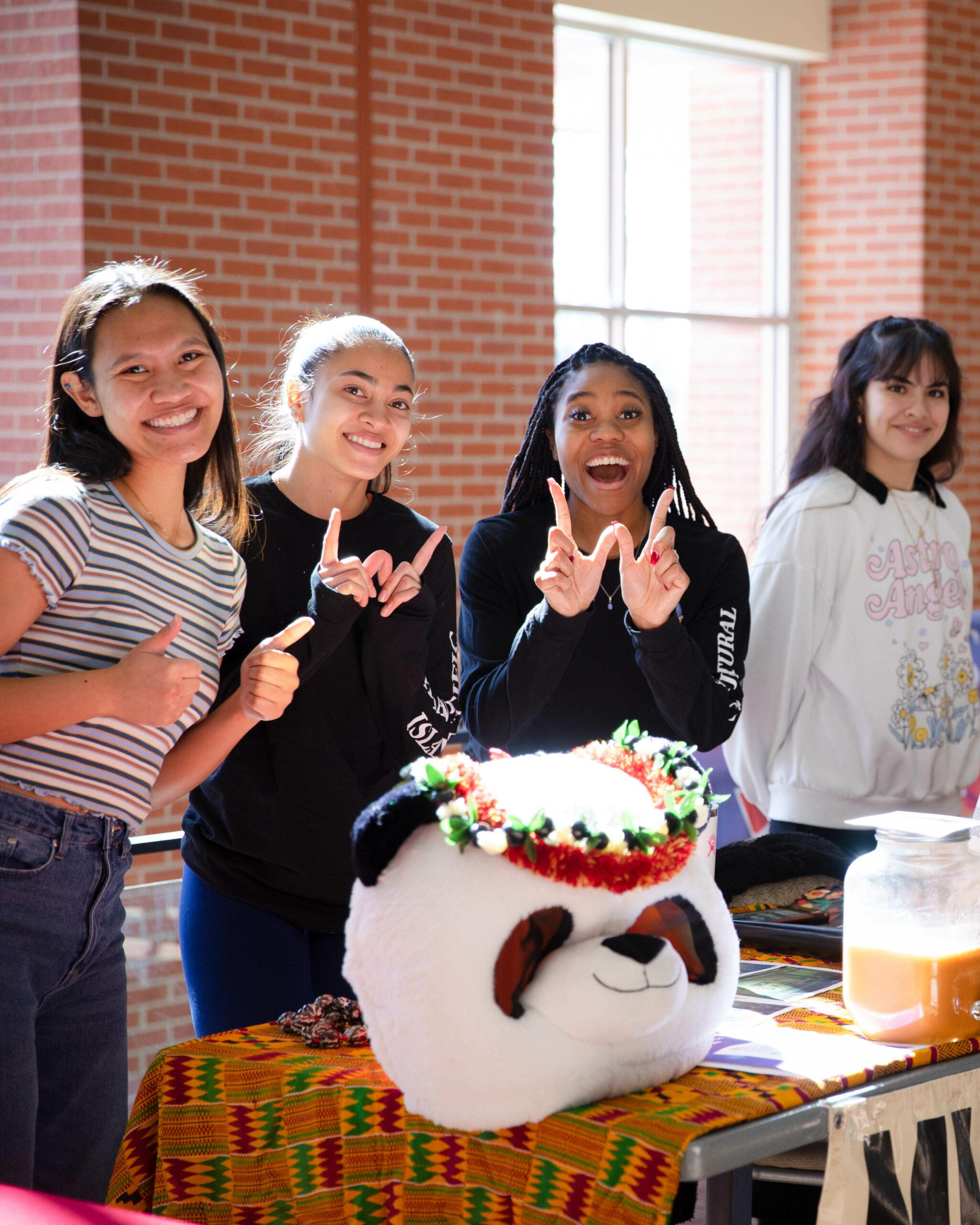
THIS IS THE APPROVED STUDENT HANDBOOK FOR 2023-2024
This handbook should not be construed as a binding contract between the University and the Student. The University Reserves the right to amend the provisions herein, as necessary.
If there are any changes made to the 2023-2024 Student Handbook students will be notified electronically using the official Western Email. For additional information, individuals may contact the Office of Student Affairs in Taylor Hall 301.
UNDERGRADUATE & GRADUATE STUDENT POLICIES AND COMMUNITY STANDARDS OF CONDUCT
Western Colorado University, takes a firm and unyielding stance in support of diversity, inclusivity, scientific inquiry, and creative expression. We believe these principles are necessary for the free and open inquiry that defines our role as a public institution in a democratic society. We believe that these principles are a moral imperative requiring constant vigilance and a firm stance against actions motivated by hate or intimidation. The university welcomes people of color, people with disabilities, people of all genders and orientations, people of all religious preferences, immigrants and refugees regardless of national origin or ethnicity and other underrepresented communities regardless of socioeconomic class. We actively seek to build a civil and respectful culture which affirms these principles in all that we do.
Western Colorado University promotes intellectual maturity and personal growth in its students and prepares them to assume constructive roles in local, national and global communities. Western’s distinctive character emerges from its unity among academic and professional disciplines, high standards of scholarship, and a unique environment in the mountains of western Colorado.
We strive to be recognized for our commitment to student success by providing transformative opportunities, outstanding service, resources, and facilities that enhance learning and development.
The mission of Student Affairs is to enhance the student experience by serving as the hub for student-centered collaborations, programs, and services that foster personal growth, a sense of community, and learning through both curricular and co-curricular experiences and by addressing the varied and evolving needs of students in the 21st Century through utilizing a challenge and support theory of student development.
Student development at Western integrates both in-class and out-of-class experiences of students. These educational efforts are directed at developing both intellect and character of students. To accomplish this, Western makes a wide range of educational experiences available through programs and activities that complement and support the academic experience in the classroom. Although the primary focus of these activities is to advance student learning, they also provide needed services, support, and recreational opportunities to help students meet the challenges of college and to enhance the quality of student life. The Division of Student Affairs operates within a Challenge and Support Theory throughout all its Departments.
The college experience is one of the greatest periods of growth in a young person’s life. For that growth to occur, each of our students need to be challenged (and supported) appropriately through a variety of experiences, both inside and out of the classroom. Some of these experiences may be unpleasant, like a failing grade in a class. Challenge and support does not imply that the student will never experience failure or negative consequences, but what it does imply is that when those consequences take place, there will be individuals and processes in place to support the student as they learn from the experience.
A student is any person taking courses at Western, either full time or part time. This includes persons pursuing an undergraduate, graduate, Extended Studies or Concurrent Enrollment course, online or as residential student, as well as, non-degree seeking students, exchange (NSE), and international students.
This definition includes persons who register for classes, attend New Student Orientation, or are between academic terms including holiday and summer break. Refer to Section Nine regarding FERPA regulations.
Students who have or are withdrawn from Western, on academic or conduct suspension, expelled, or not currently enrolled in courses will not be considered students. Those who fail to register for, or attend classes without notifying Western of the absence, will not be considered students and must reapply for admission. Students who notify Western that they will not be attending classes, and do not attend, for a designated period time, i.e. one semester, will not be considered students and must reapply for admission.
Western reserves the right to rescind offers of admission and scholarships, including merit, academic, and athletic, due to any disciplinary findings at another academic institution, or criminal findings. Western may also rescind offers of admission and scholarships based upon misrepresentations in applications or any other inappropriate conduct that could infringe on the rights of others or the normal functioning on Western where such conduct is inconsistent with Western’s mission or otherwise is not in compliance with Federal Law, the Colorado Revised Statutes, local ordinances, or University policies.
Persons who could fall in to any of the forgoing categories have an obligation to inform the University immediately.
As a condition of receiving Federal funds, a school agrees that it will not exclude, separate, deny benefits to, or otherwise treat differently on the basis of sex any person in its educational programs or activities, unless expressly authorized to do so under Title IX or its implementing regulations. The Departments of Education and Justice treat a student’s gender identity as the student’s sex for purposes of Title IX and its implementing regulations. This means that Western will not treat a transgender student differently from the way it treats other students of the same gender identity. This interpretation is consistent with courts’ and other agencies’ interpretations of Federal laws prohibiting sex discrimination. Students may use the facilities which correspond to their gender identity as expressed by the student and asserted on campus, irrespective of the gender listed on the student’s records, including but not limited to restrooms and locker rooms (NCAA athletes should consult with the Western Athletic Director for details concerning NCAA requirements). No student will be required to use an alternative restroom merely because they are transgender.
Community Standards provides proactive programming and educational interventions in an effort to foster the development of personal and community responsibility.
Community Standards is responsible for overseeing Western’s conduct system and coordinating all related processes and functions. Community Standards is responsible for the interpretation and enforcement of Western’s Student Conduct Code, which governs the rights and responsibilities related to all acts of student conduct. Community Standards is housed in the Office of Student Affairs and is directed by the Associate Vice President for Student Affairs who serves as the Chief Conduct Administrator.
Goals
- To provide educational programs and interventions directed at encouraging responsible, community-minded conduct.
- To establish and enforce reasonable and clear limits designed to protect the campus community and the rights of all its members.
- To develop and support a positive living and learning environment.
- To educate students regarding responsibility and accountability for their actions.
- To encourage and foster self-insight and self-initiated change of conduct.
- To protect the rights of individuals accused of violating Western’s rules and policies.
- To provide a fair, supportive, and timely conduct meeting process to address instances of alleged violations of Western’s rules and policies.
- To offer learning experiences for students, staff, and faculty who participate in the on- going direction and implementation of the student conduct process.
Western’s conduct system is educational in nature. Programs, conduct meetings, and disciplinary actions are designed to challenge and support students to empower themselves to establish and maintain a positive, responsible, and supportive community.
Students, staff, and faculty are trained to discuss conduct in a straight forward, positive manner. Respect, honest dialog, fairness and an objective consideration of all information is critical to the process.
The key to effective conduct outcomes is threefold: 1) to assist the student in understanding the decision making process of their actions; 2) to assist the student in understanding the ways in which such actions negatively impact other individuals, the campus, and the Gunnison community; and 3) to help the student identify and learn more effective methods of judgment and action in the future.
Passive Disciplinary Outcomes include conduct sanctions that are given to a student due to misconduct in which the student has little or no control of the outcome. Examples include, but are not limited to: warnings, conduct probation, parental notification, fines, suspension, and expulsion (dismissal).
Active Disciplinary Outcomes include conduct sanctions in which the student must take greater responsibility for the outcome. Examples include, but are not limited to: service projects/hours, written assignments, interventions, online courses, program attendance/facilitation, and activities/projects.
Take the Next Step

Apply to Western
We understand that applying to a university can be daunting, which is why we make our admission process as simple and straightforward as possible. Learn more about applying to your program of choice at Western.

Visit Western
The best way to find out what makes Western such a special place is to experience it for yourself. Our student-led tours give you an insider’s perspective on everything from academics to student life.

Alumni Community
We keep the Mountaineer spirit going strong within our alumni community. Whether getting together with friends at an annual event, making a donation or mentoring a student, graduates continue to play an important role in the Western community.

Request Information
Want to discover more about Western? Request information today to get in touch with the admissions team.
